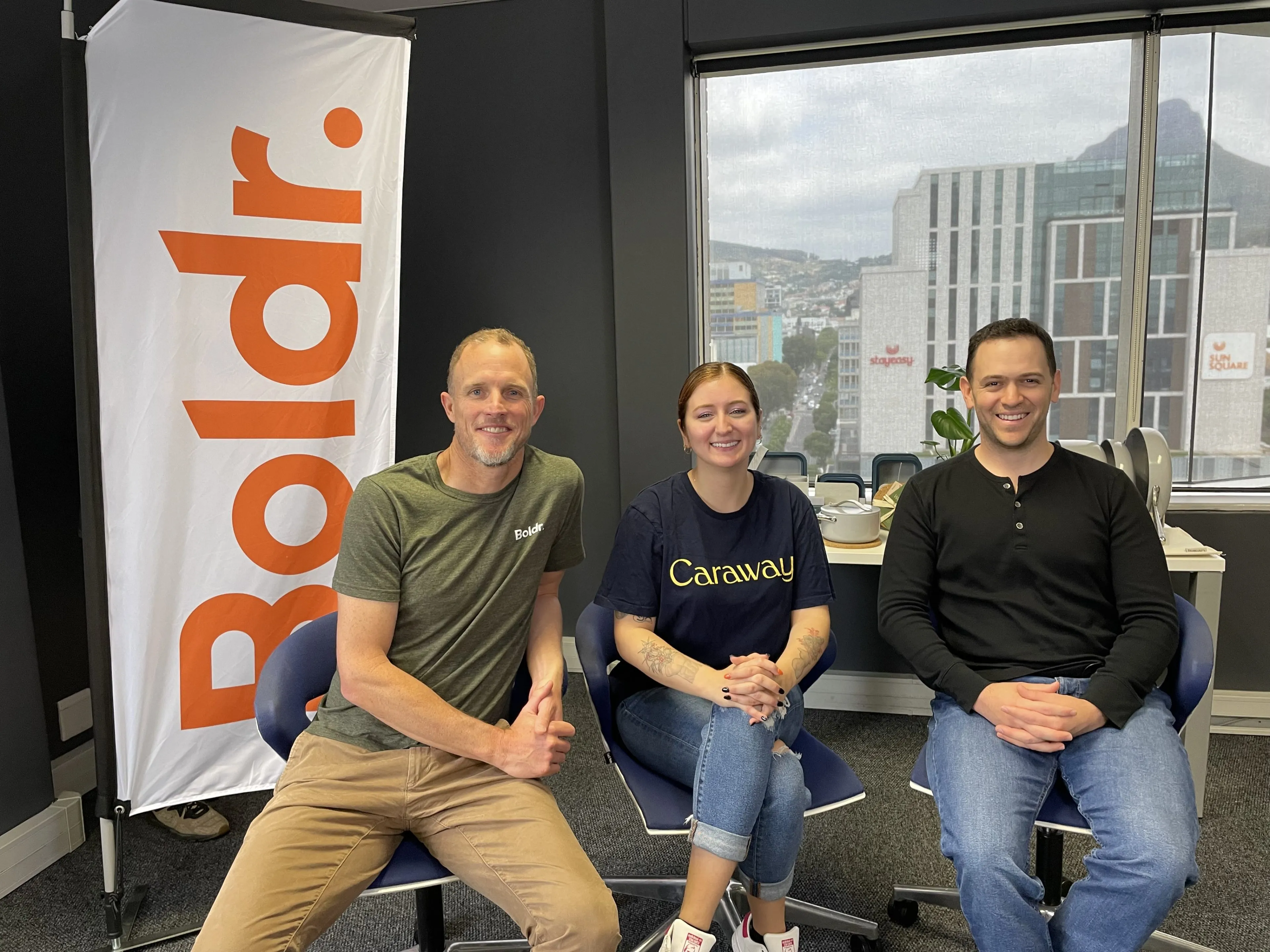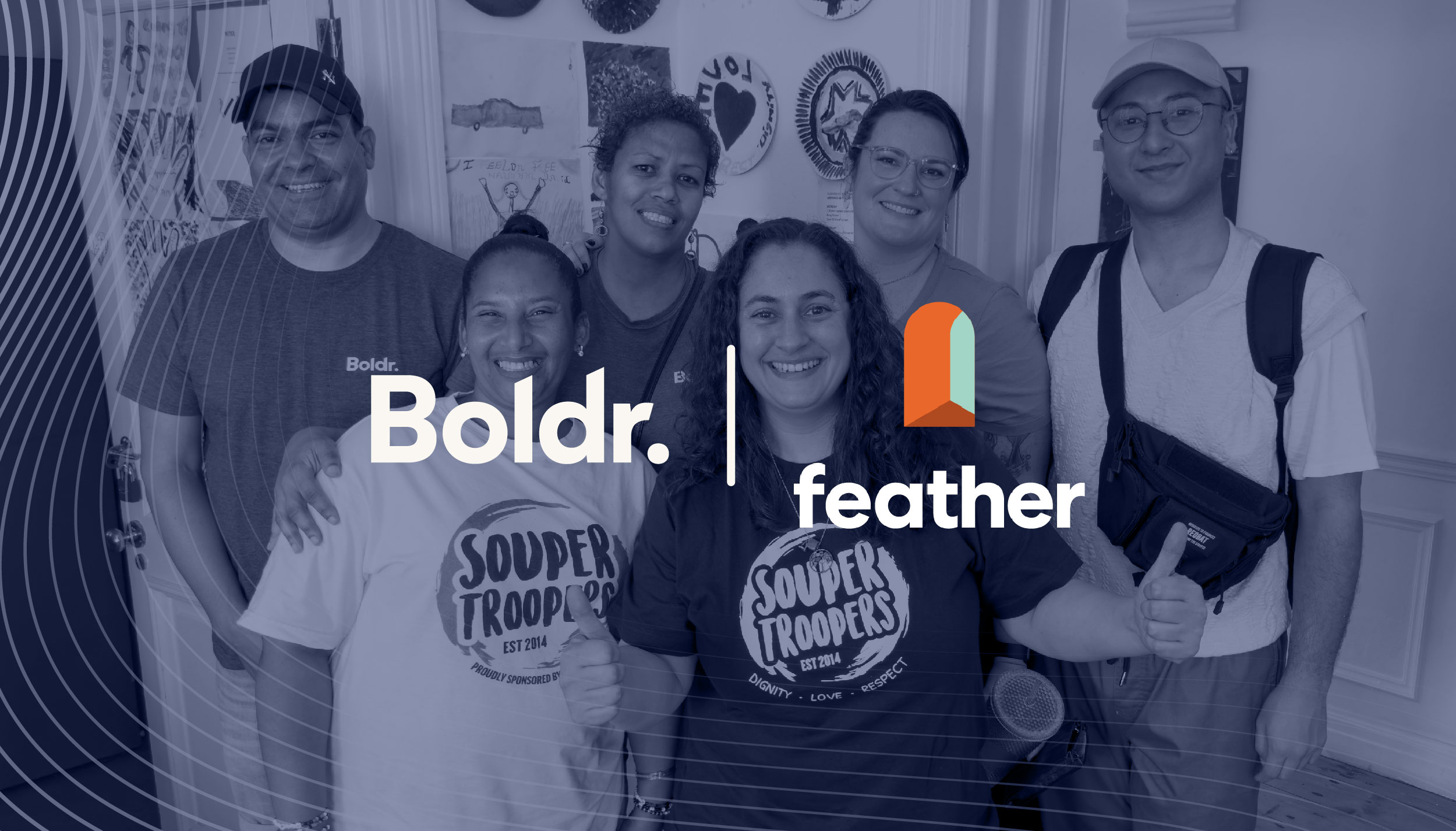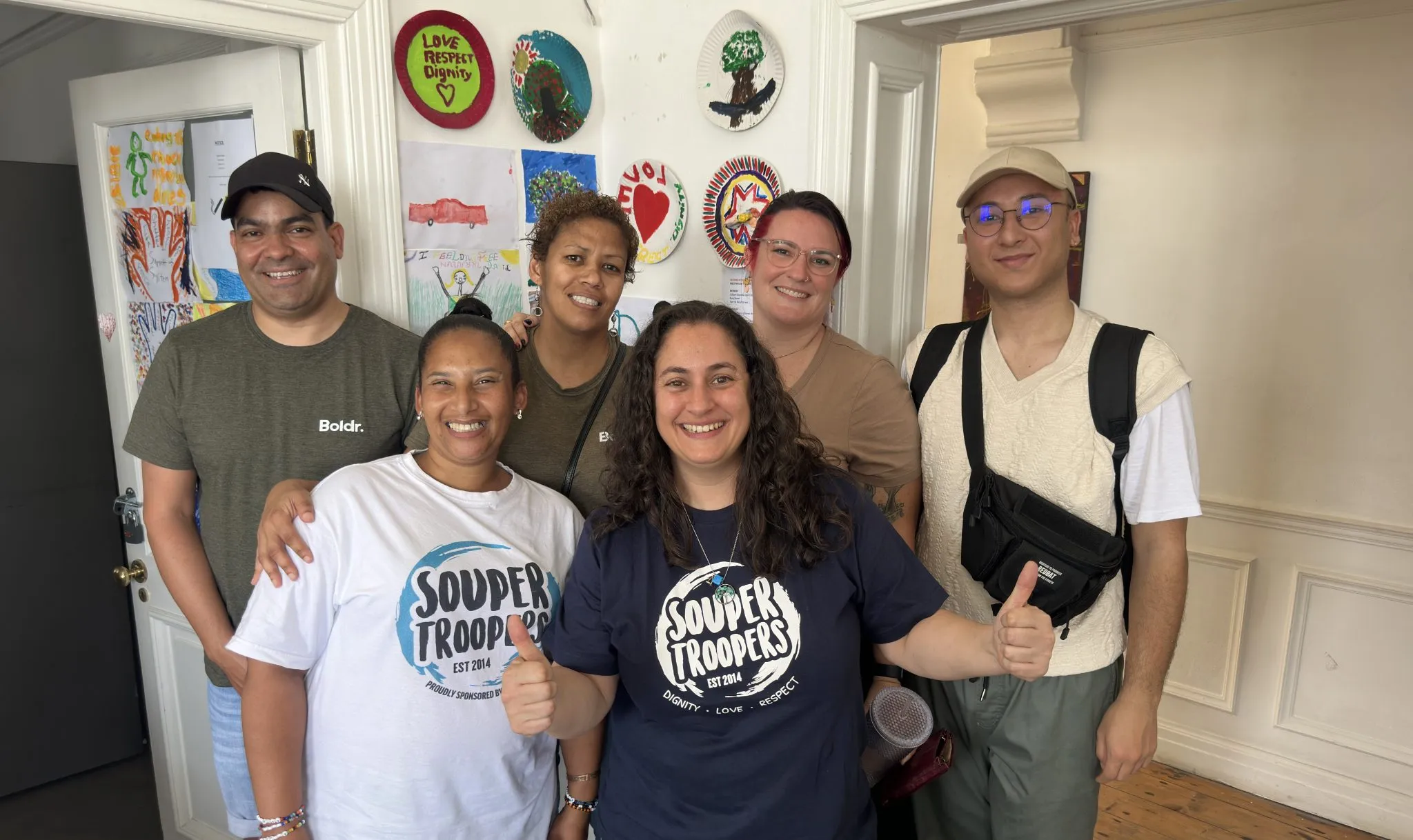On the cusp of the 2022 holiday season, Caraway visited Boldr’s South Africa office to meet the team. The purpose of the visit was to engage with their extended team in SA and to conduct in-person training, which is a sure-fire way to grow team cohesion in a remote-first world.
This was a great time for us to connect with one of our e-commerce clients while they were preparing for Black Friday/Cyber Monday and their seasonal ramp. We used the opportunity to get to know Caraway better, to learn more about what makes them a successful online business, and why they decided to take hands with an outsourcing partner.
Caraway’s Mark Riskowitz, VP of Operations, and Nancy Gurd, Associate Director of Customer Experience, met with Pete Eickhaus, Director of Client Experience at Boldr, in our Cape Town office. Pete sat down with Mark and Nancy to ask about their experiences in the CX and e-commerce industry. Here’s what was discussed.
Getting values aligned
The success of a business process outsourcing (BPO) partnership relies heavily on getting values aligned right at the start. Caraway’s heightened focus on offering each client a unique and memorable customer experience is equally matched by the value they place in each team member, which resonates with our desire to create opportunity for hidden talent.
According to Mark, Caraway’s mission is to elevate the kitchens of their customers in a health, elegance, and modernization aspect. However, Caraway’s values extended beyond their products and their customers, all the way down to their own teams. Nancy was quick to point out that it is important at Caraway that everyone is treated as a human being.
Empathy is the ultimate customer experience
Caraway launched six months before the global lockdowns began. While the world came to a near standstill, it also gave rise to a remote working trend that would fundamentally change both CX and e-commerce. Mark saw this shift as an opportunity to make the customer experience more personal than before.
Nancy started during the pandemic, when social engagement was in high demand. Being a people person, she advocates for human-to-human contact in the customer experience process. “In conversations between client and agent, nobody wants to feel like they’re just a dollar sign. At Caraway, we want all of our clients and our agents to know it goes beyond that. It’s empathy. It’s that connection. If you have something going on, as an agent, how would you want that solved? That’s how you would want it. Why can’t we do that for our customers as well?”
Using empathy as a metric in CX
Tracking progress and measuring success is extremely important in the support and e-commerce industries. Since Caraway is determined to add a human-centric spin to their processes, they also changed the way they measure productivity or performance by first leading with empathy. They start this process by telling all new hires to unlearn what they think they know about customer service.
Their biggest metrics are empathy and communication. Just by focusing on empathy, they have gotten their CSAT to the highest it’s been since the company’s launch. Beyond that, another high level metric is response time. For emails, they respond in a matter of hours and for chats, customers are quickly connected to a live agent anytime during the day. However, it was the combination of empathy and communication that led to a drastic reduction in their response times. This puts the proof in the pudding for companies who are contemplating leading their CX teams with a renewed focus on empathy.
Mark added that Caraway still does all the traditional support metrics. Because of practicality, it is measurable. They don’t necessarily focus on hitting those metrics by focusing on the metrics themselves. They focus on the foundational and fundamental aspects of empowering the folks on the front lines to make a decision, to build their confidence and self-esteem. Teams are empowered to offer solutions instead of giving a forced, pre-scripted policy that is either a binary zero or one. That level of freedom in the beginning takes time because there’s a lot of unlearning to do.
While they have objectives and key results to focus on, Mark views them as quantitative tracking metrics. Instead, they are diversifying from the core and trying to achieve those objectives by being creative and different. “We like to do things differently. We focus on the voice of the customer because as long as you focus on that, you’re able to achieve and excel any of your other goals, especially within the customer service team.”
Embracing technology as a fast-growing e-commerce company
To learn more about Caraway’s approach to tech, Pete asked them more about the processes they were running. By understanding what tech stack Caraway is using, we would be able to understand how they utilize or leverage tech to help bring efficiencies and effectiveness into their company.
For CX, their tech starts with their Helpdesk. They are currently using Gorgias because this enables them to not only make teams, but sub teams and to filter the way messages are coming in, who they’re going to, who sees it, and how it’s shared across teams. They use Loop for their returns, which is focused on changing the returns experience and offering customers other options. They also use Stella Connect (recently renamed to Medallia Agent Connect) for customer surveys, which is meant to take the CSAT experience to a higher level.
For Operations, Caraway uses Fulfil.io as their auto management system. They run the website on Shopify and use Klaviyo on the marketing side. “We are very tech heavy. We love the words automate and self-serve. Yet, we have a very bullish approach on how we do customer experience. We want that human interaction. We’re not necessarily streamlining self-serve to a point where you don’t ever get to engage with an individual. We want that and celebrate that. So we really are marrying the two angles of powering up our tech stack to keep things foundationally strong and smooth.”
Why outsource?
With such a specific customer focus and a knack for bending the rules, Pete was curious about Caraway’s reasons for engaging Boldr as their outsourcing partner. The answer to this question rested in Caraway’s rapid growth and how they planned to scale their business to embrace this growth.
In the fourth quarter of the previous year, Caraway experienced tremendous growth. After the holiday season, it dawned on the team that they were not only a fast-growing e-commerce company, but they were facing numbers and growth at a scale they didn’t fully understand. Continuing that growth, meant having to rethink how they did customer experience, which meant having to rethink the team itself. They decided to adopt a hybrid model of in-house team members and another team on the front lines.
At this point they connected with Boldr and went through the process of understanding how to marry those teams. “We got to a point of finding that secret sauce,” said Mark. “That combination, the time zones, the cost, and the word of mouth that we got from other clients. It all just fell into place and the team did an amazing job making us feel comfortable from the very beginning when we started the sales process.”
In kind, Nancy recalled how they had to unlearn what they thought of an outsource company. The tendency to view conventional BPOs as large call centers with hundreds of agents is a common misconception, especially when it is a BPO that is driven to make a difference through impact sourcing and community initiatives. Caraway was delighted to find a company that matched their company culture perfectly, with the same energy, where it never feels like work, but rather like an extension of their own in-house team.
While Mark is proudly South African, they favored having a team in the country to cover US time zones, while not being too demanding on the individuals. However, Mark pointed out that, one of the key decision-makers in partnering with Boldr was the fact that Caraway had an existing team scattered around the Philippines and they wanted to retain those team members, which was a process Boldr was excited to help Caraway with.
The team in the Philippines were freelanced through Upwork. As a young company with high growth, the Caraway team didn’t fully understand the complexity of hiring overseas. They wanted to give each team member a new home where they could have access to benefits that they wouldn’t have as freelancers. They were thrilled to migrate the entire team across, because it gave them peace of mind that the teams would be cared for.
Mark closed off by saying, “The resourcing, the strategies, are really world class. I hope other clients get to see what we’ve experienced in the past six months. We’ve found a recipe that works with Boldr. It’s exciting for us to see how this will scale, how our company will grow, and the different areas of support we need. Something that people don’t realize is that it’s not just outsourcing of agents. From different elements of data entry support, logistics, the things that we could essentially grow a lot more outside of season as our organization matures. And so, it’s more about what other elements of our organization can we actually run through Boldr and use Boldr as that sort of powerhouse.”
James Fouche is the Content Manager at Boldr, as well as an author and a columnist. He is passionate about sharing his love of reading and writing with others.


